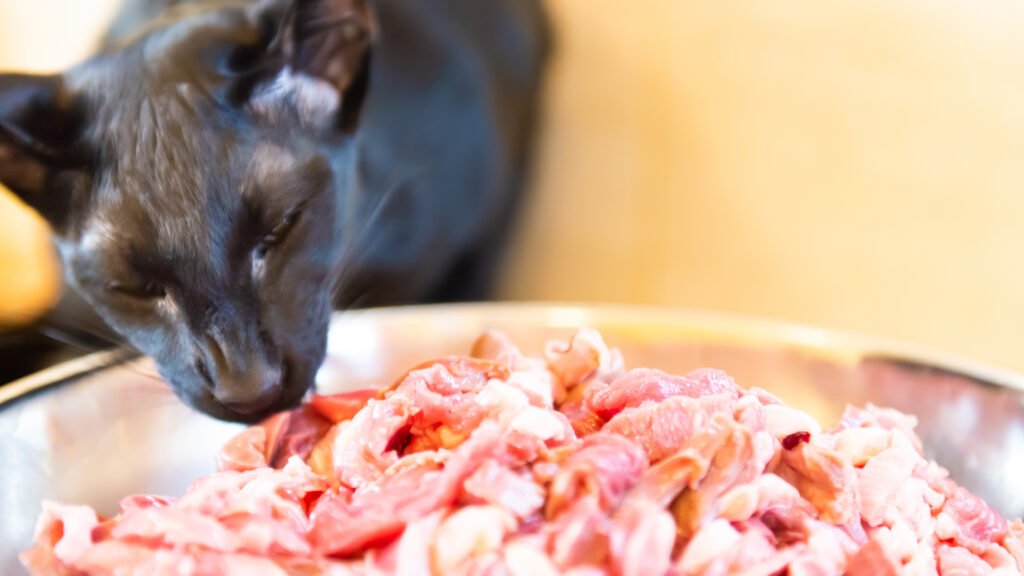We need to prioritize science, data, and expertise in addressing the growing threat of zoonotic diseases like H5N1 bird flu. The wellness industry’s spread of misinformation is not just a harmless trend — it’s a dangerous force that can have devastating consequences for both animal and human health.
The $6.3 trillion wellness industry capitalizes on distrust of science, glorifies “natural” alternatives, and uses fear-based marketing to push pseudoscience. This has led to a proliferation of misinformation in both human and veterinary health, with raw pet food being a particularly concerning issue.
Raw pet food advocates have long promoted the idea that raw diets are “ancestral” and “biologically appropriate” for pets, despite overwhelming evidence showing the risks associated with these diets. In the case of H5N1 bird flu, raw pet food made from infected sources like poultry and dairy cattle can carry live viruses, putting pets at risk of infection and mortality.
The spread of H5N1 among domestic animals like cats is a clear example of how misinformation in the wellness industry can have deadly consequences. Cats that have consumed raw pet food contaminated with H5N1 have suffered high mortality rates, highlighting the dangers of misinformation in pet health.
Wellness influencers that push anti-science attitudes and misinformation are not only putting animals at risk but also increasing the likelihood of zoonotic transmission to humans. The ability of viruses like H5N1 to mutate and potentially jump to new hosts underscores the urgency of addressing this issue.
To combat the spread of misinformation in the wellness industry, we need to prioritize evidence-based disease control measures, increased regulatory oversight, and policies that address zoonotic diseases. The recent dismantling of critical health agency departments like the FDA’s Center for Veterinary Medicine is a step in the wrong direction and must be reversed to protect the health of animals and humans alike.
In a time when the health of our pets, ourselves, and the planet is at stake, we cannot afford to let pseudoscience dictate public health policy. It’s essential that we prioritize science, data, and expertise in addressing the growing threat of zoonotic diseases and work towards a more informed and responsible approach to pet health and wellness. As we strive to combat the spread of infectious diseases through the pet food supply chain, it is crucial to not only fully staff the center but also implement laws and oversight on raw pet food manufacturing and distribution. Mandatory pathogen testing, clear labeling, and enforceable safety standards are essential to prevent the transmission of diseases through pet food.
Furthermore, science-driven animal health policies must be put in place, including the vaccination of domestic poultry and other animals. Culling protocols should also be established to prevent the unchecked spread of diseases like H5N1. These interventions have been proven to contain H5N1, prevent cross-species transmission, and reduce the risk of a human pandemic.
However, proposals such as letting H5N1 spread unchecked through birds, as suggested by RFK Jr., will have the opposite effect. Strengthening pasteurization requirements and food safety laws is imperative, as raw milk and dairy products are known vectors for many viral and bacterial pathogens, including H5N1. It is essential to expand food inspection budgets rather than cutting them to ensure the safety of the food supply chain.
In addition to these measures, accurate public health communication at the national and state levels is crucial in combating pseudoscience and food safety misinformation. With the rise of social media influencers spreading false information, it is more important than ever to provide accurate and science-based information to the public.
The real threat does not just come from the virus itself but from the anti-science movement that enables its spread. History has shown us time and again how pseudoscience can be deadly. The wellness industry, if not regulated properly, could fuel the next pandemic. With critical science and health agencies being undermined, the risk of a pandemic may come sooner than we anticipate.
Andrea Love, Ph.D., an immunologist and microbiologist, who works in life sciences biotech, has founded ImmunoLogic, a science communication and consulting organization, to combat health disinformation. It is through the efforts of dedicated individuals like Dr. Love that we can work towards a safer and more informed society.


